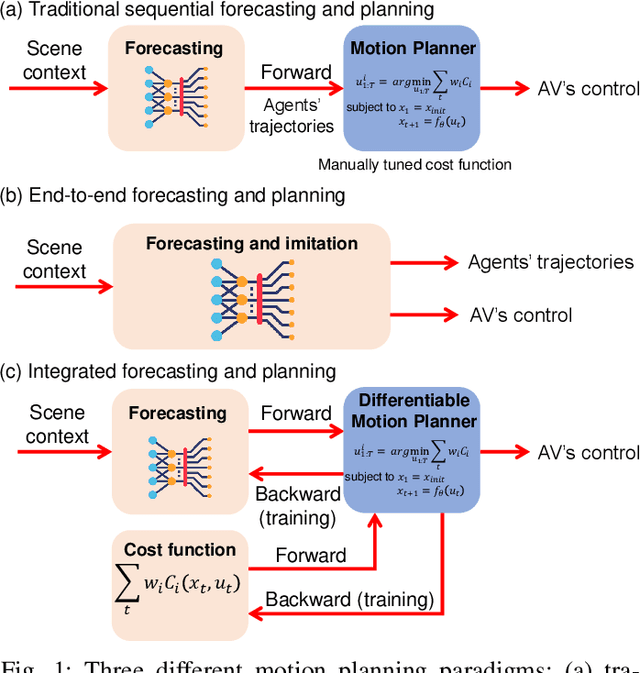Differentiable Integrated Motion Prediction and Planning with Learnable Cost Function for Autonomous Driving
Paper and Code
Jul 21, 2022



Predicting the future states of surrounding traffic participants and planning a safe, smooth, and socially compliant trajectory accordingly is crucial for autonomous vehicles. There are two major issues with the current autonomous driving system: the prediction module is often decoupled from the planning module and the cost function for planning is hard to specify and tune. To tackle these issues, we propose an end-to-end differentiable framework that integrates prediction and planning modules and is able to learn the cost function from data. Specifically, we employ a differentiable nonlinear optimizer as the motion planner, which takes the predicted trajectories of surrounding agents given by the neural network as input and optimizes the trajectory for the autonomous vehicle, thus enabling all operations in the framework to be differentiable including the cost function weights. The proposed framework is trained on a large-scale real-world driving dataset to imitate human driving trajectories in the entire driving scene and validated in both open-loop and closed-loop manners. The open-loop testing results reveal that the proposed method outperforms the baseline methods across a variety of metrics and delivers planning-centric prediction results, allowing the planning module to output close-to-human trajectories. In closed-loop testing, the proposed method shows the ability to handle complex urban driving scenarios and robustness against the distributional shift that imitation learning methods suffer from. Importantly, we find that joint training of planning and prediction modules achieves better performance than planning with a separate trained prediction module in both open-loop and closed-loop tests. Moreover, the ablation study indicates that the learnable components in the framework are essential to ensure planning stability and performance.
 Add to Chrome
Add to Chrome Add to Firefox
Add to Firefox Add to Edge
Add to Edge